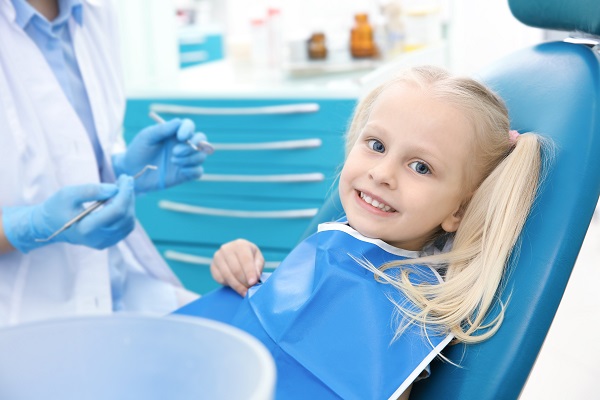Dental Fillings For Kids: Preparation For The Procedure

It is normal to be concerned if the dentist indicates the need for dental fillings for kids after performing a dental examination. Cavities are fairly prevalent among children. Cavities affect 60 to 90 percent of school-aged children, according to the World Health Organization. As a result, dental fillings for kids are common. Continue reading to find out how you can prepare for the filling procedure.
Preparing for a dental filling
The following are tips for parents who have kids that need to undergo a dental fillings procedure:
Keep a calm demeanor
If a child is concerned about undergoing dental fillings, having a nervous parent will not help matters. Therefore, parents need to stay calm and cheerful when discussing the child's next checkup, even if they are apprehensive. Children pick up on their parent's emotions, so if they detect a confident demeanor, they will be more relaxed at their first filling appointment.
Also, avoid scolding the child for having a cavity. While it is great to talk about ways the child can improve their oral hygiene to maintain good oral health, scolding or guilt-tripping a child for having cavities is never a good idea.
Discuss options with the dentist
Parents should talk to their dentist ahead of time about sedation for the child during the filling treatment. Nitrous oxide, sometimes known as "laughing gas," is frequently used to help children sit still, relieve anxiety, and lessen discomfort. Oral sedatives are also used occasionally. On the other hand, many children do not require sedation and can sit quietly and withstand the treatment without difficulty. It is very dependent on the temperament of the individual child, so make sure to discuss the options with the dentist before the treatment.
Answer questions honestly
The child will probably have a lot of questions regarding the procedure coming up. Parents should provide truthful answers as much as possible. Learning about the procedure ahead of time will help the child feel less anxious about their first filling. They need to know they will sit on the dentist's chair, probably hear some strange noises, and that the dentist will put numb part of their mouth to prevent discomfort. The child should know that their mouth may feel odd for a short time after that but that this sensation will pass.
Visit the office with a comfort item
The child needs to be as comfortable and relaxed as possible during the appointment. Parents should allow their children to dress in comfortable, loose-fitting clothing. Allowing them to bring a comfort object, such as a beloved stuffed animal or a little stress ball to clutch in his palm throughout the process, is another option.
In conclusion
Of course, the best way to deal with cavities is to avoid them in the first place. Brushing twice a day and flossing once a day will help your child develop good oral health habits on time. Every six months, they should also see the dentist for a cleaning and checkup. Please get in touch with us right away if you have any questions about dental fillings for kids.
Request an appointment here: https://www.hvkidsmiles.com or call Hudson Valley Pediatric Dentistry at (845) 363-4177 for an appointment in our Middletown office.
Check out what others are saying about our services on Yelp: Read our Yelp reviews.
Recent Posts
Dental sealants safeguard the teeth against tooth decay by forming a barrier between bacterial plaque and the tooth enamel. The many tiny grooves on the surfaces of the back teeth may catch food particles. Since routine brushing cannot entirely remove them, they often stay there for an extended period. Cavities develop as a result of…
If a cavity develops and worsens, it could lead to the risk of a dental emergency due to an infection or severe discomfort. Dental sealants significantly reduce the risk of a dental emergency by helping to prevent cavities in vulnerable areas of teeth. Read on to learn how dental sealants can prevent a dental emergency…
Pediatric dentistry is a field of dental care that helps foster healthy oral habits in children and adolescents that can last a lifetime. By introducing young patients to regular dental care early on, these dental professionals and the patient's parents can set the foundation for strong, healthy teeth and gums. Here are five ways pediatric…
Cavity treatment for kids is important to keeping their teeth healthy and their smiles growing strong. Cavities are one of the most common dental problems in children, but they can be treated and prevented with proper care. Parents can help their children maintain healthy teeth and avoid future dental issues by understanding how to treat…


